When people plan for survival scenarios they often times gather supplies in large quantities in hopes to wait out any chaotic breakdown of civil order. The truth is in a real SHTF scenario chances are you will be bugging out and not hunkering down in some urban or suburban area.
That means you will be travelling light because you will be in a hurry to get away from large population centers. It also means you will only be carrying the absolute essentials on your back and one of those better be a means to fish.
Why be prepared to fish? That is because chances are, it will be one of the most abundant and nutritious food sources available wherever you go. Fish can be found anywhere from mountains, to coasts to flat plains. So it’s best to be prepared to catch them. You and your family’s health may be wholly dependent on survival fishing at times.
Another big advantage you get when you catch fish is that you can safely dry them and store this dried fish for long periods of time too. Think of fish as the survival gift that keeps on giving.
Types of Survival Fishing
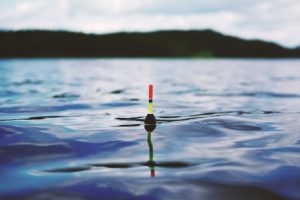
A hook, line and sinker kit can be packed so that it is smaller than a miniature travel medical kit. This kit will be virtually weightless too.
Here are some of the main ways to fish when you are in a survival situation and available fishing gear is most likely limited:
- Simple hook, line and sinker setup – Our preferred choice as we will discuss throughout this article.
- Fish traps – Fish traps can be made using such things as plastic bottles (see catching minnows under bait below), using net traps and even just configuring rocks in a way where fish can swim in but not swim out. Some of these methods have been used successfully for centuries.
- Spearing – If the fish are there in the shallows and you have some good hand/eye coordination this is never a bad way to go.
- Netting – If you have a big enough net it can be strategically placed to catch fish or moved along in body of water by two people to simply net the fish swimming in there.
- Noodling – This is when you gently put a large fish in a hypnotic state and then simply catch it by hand. It may not catch you any fish but it most assuredly will be good for some laughs and breaking up the stress in a SHTF scenario.
The ability to catch fish is definitely one of the essential survival skills that you need to know.
Why Chose A Hook, Line and Sinker Over the Others?
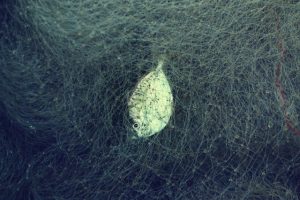
If you have a big enough net it can be strategically placed to catch fish or moved along in body of water
So why are we high on using hooks, line and sinkers to catch fish in our survival scenario? The answers are not all as obvious as you might think. Take a look at a few of the main reasons why we would fish using this method.
- Easy to pack/space-saving/Lightweight – A hook, line and sinker kit can be packed so that it is smaller than a miniature travel medical kit. This kit will be virtually weightless too.
- Other uses – We will go ‘Rambo’ here and tell you that a fish-hook and fishing line can come in very handy to stitch up a deep cut in a pinch. Not to mention that fishing line itself can be used in hundreds of different ways when trying to survive.
- Its versatile – Fishing setups with a hook line and sinker can be successfully used in so many different types of bodies of water.
- Easy to use – In just minutes you can have a hook, line and sinker rig in the water so you can try to catch fish.
How to Effectively Fish With Hooks, Line and Sinkers
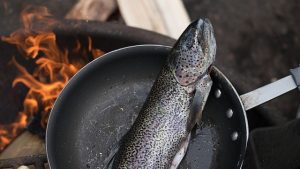
It’s important to remember when you set up your fishing rigs that you are not out to pass the time on a sunny afternoon and relax. You are trying to survive so traditional fishing tactics and methods just won’t cut it. You have to be creative and maximize your chances for success. Get as many lines as you can in the water to increase your chances of success.
When fishing with crude hook, line and sinker setups, experimentation is the key. Just like when you are recreational fishing you don’t know what the fish will be hitting on at the time or where they will be at. That is why you need to rig your lines to do such things as float the bait on the surface, weigh the bait down towards the bottom or drift the bait in the flow of water.
Move your lines around to different spots in the body of water you are fishing. For instance, if you are fishing in a stream look for areas where overhead branches provide shade during the day and hang a few fishing setups off those branches. Remember fish usually go down deeper during the day to stay cool but move closer to the surface at night.
Most fish do not hang out in swift currents either. So look for places in a steam that have deep pockets of water with very little current. In larger bodies of water try weed beds, rock outcroppings and docks where fish can find plenty of food sources nearby.
Again the key to successful survival fishing with a hook, line and sinker setup is to experiment until you find what works on a regular basis for you.
Maybe you don’t think it can be done successfully? Check out this YouTube video and see just how fast this gentleman catches a fish using just a hook, line and sinker setup.
Suggestions for Bait to use
Many people worry about packing bait in a survival scenario to help than catch fish. Sure some small bait can be packed and fish luring scents used on a regular day, but once again we are talking about a possible survival situation where you bring the essentials and get the rest from the land. That is exactly the way you should approach finding bait. Please don’t waste your time packing those annoying rubber worms in your survival kit either.
- Dig for worms – You can’t be too picky about the type of fish you are catch when you are trying to survive. Worms can be easily found by digging in most places and many different fish are attracted to them.
- Catch craw-fish, crabs and frogs along the banks – These are favorite foods for many types of larger fish and can be cut up to attract smaller fish too.
- Food scraps – Just about ant meal you eat will have some scraps left over that can be used for bait. Leftover fish guts and other animal guts make great baits for your hook, line and sinker setups.
Make a minnow trap
Most anywhere in the world you go during a survival situation you can find a plastic bottle lying around. These can easily be made into a trap to catch minnows.
Make Sure You Have a Hook, Line and Sinker Packed in Your Survival Kit
Sure it would be nice to have your several hundred-dollar fishing rod and reel setup with you in a survival situation but it’s just not practical. So when you have to travel light and move fast in a SHTF situation make sure one of the essentials you have packed is a fishing kit that consists of hooks, lines and sinkers. It can mean the difference between having healthy food to eat every day or having to forage for scraps and greens that may not keep you and your family healthy enough.
source : Guest Contributor

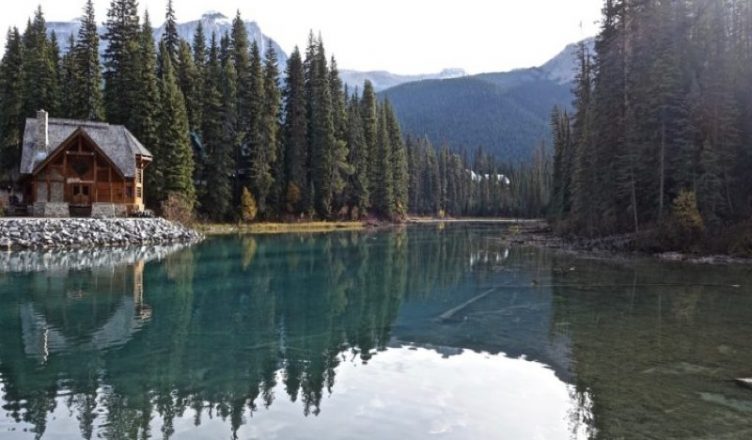



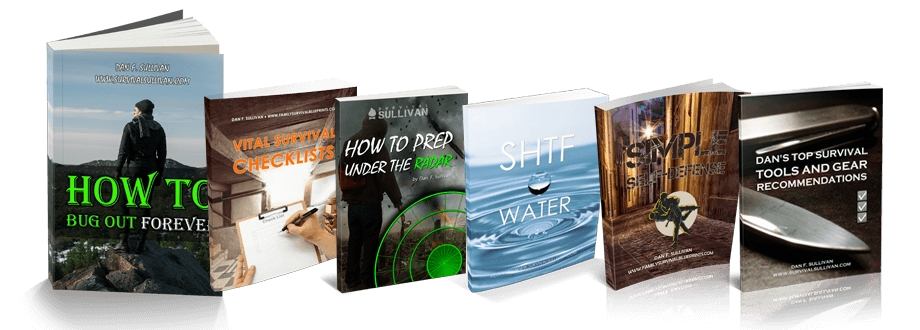
It’s also good to have some artificial bait on hand. I’m sure artificial bait whether for salt water or fresh water will store for a few years.